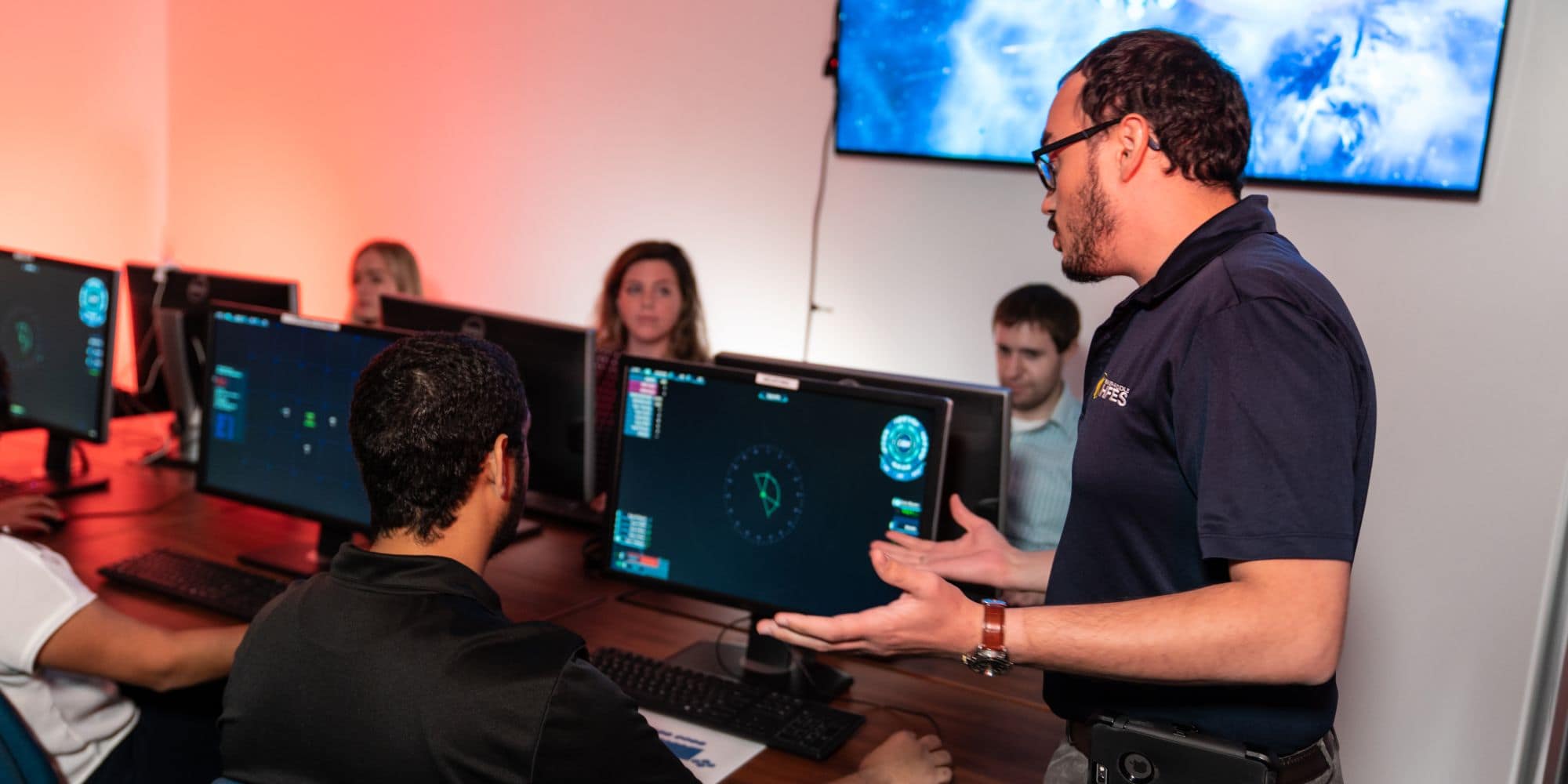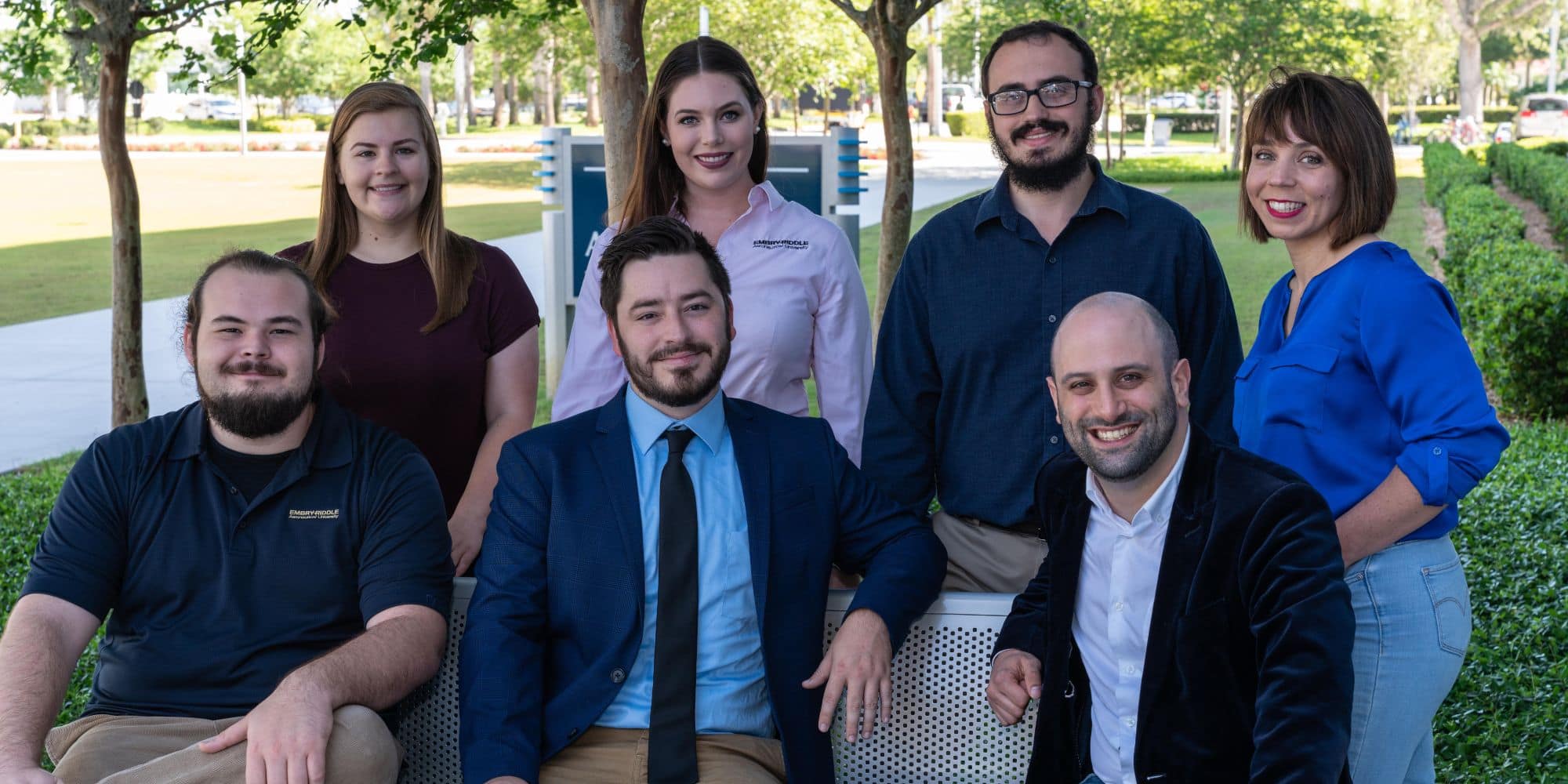

Next Level Labs
Small Teams Analog Research (STAR) Lab

Exploring the Intersection of Teams and Technology
Teamwork makes the world work and exploring how diverse groups of people mesh in a range of situations is vital for discovering ways that enable today’s teams to function with enhanced cohesion, synergy and safety.
“The STAR Lab allows us to study teams in a more experimental setting which gives us a lot more control,” said Dr. Joseph Keebler, the lab’s director and an associate professor of Human Factors and Behavioral Neurobiology in the College of Arts & Sciences. “Students get the whole gamut of doing experimental research on teams – from designing experiments to analyzing data and writing up articles and conference presentations - while working under us. Even if they don't do this as a scientific endeavor, they gain practical knowledge and skills as well.”
Dr. Scott Shappell, professor and chair of the Department of Human Factors and Behavioral Neurobiology, said that as “the cornerstone of such diverse industries as aviation and healthcare, teamwork can make or break success.”
“Essentially none of us will find ourselves working alone,” Shappell added. “We will all be part of a team, which makes the work that Dr. Keebler and others do in the STAR lab essential.”
Located in the College of Arts & Sciences building, the STAR Lab was established in 2015 to help conduct human factors research for NASA and work on other industry-focused projects related to how teams interact with each other and also with technology.
The STAR Lab is part of the Game-Based Education & Advanced Research Studies (GEARS) suite of labs and Dr. Keebler, who also is co-director of the Research Engineering and Applied Collaborations in Healthcare (REACH) Lab, took over STAR in 2017.
All of the research has immediate real-world applications, which means it also offers the kind of real-world practical experience that sets Embry‑Riddle students apart when it comes to launch their career or move on to pursuing a master’s or Ph.D.
The methods for exploring the inner workings of teams are varied and one of them are also fun, in a Final Frontier kind of way.
“We use some video games for team research, and one in particular is called Artemis, which simulates the bridge of the starship on ‘Star Trek,’” Dr. Keebler said. “It allows each team member to control a different aspect of a spaceship and each person relies on two or three other people to get the job done. We call that interdependence and that allows us to study teams in this neat gaming environment, but we’re actually studying things that matter in the real world.”


Lab Impacts on Healthcare
Dr. Keebler and STAR have set a high bar in establishing Embry‑Riddle as a thought leader in this vital area, and also when it comes to securing funding for research. The lab is a prolific source of published findings, and undergraduates are encouraged to contribute to that mission so that they can begin building stronger professional or academic networks.
Much of the current and upcoming research at the STAR Lab is now focused on how teams function in the high-stakes world of healthcare.
“We all have experienced difficulty and success working within a team,” Dr. Shappell said. “Dr. Keebler and his colleagues in the STAR lab, which include faculty and students, apply science to enhance team performance, identify where threats to success exist and demonstrate the power of human factors in carrying out tasks.”
One project submitted to the Army Research Institute involves collaborating with the University of Florida's Medical School to explore how medical teams deal with major disasters, while another investigation for the Defense Health Agency examines the high-stakes communication event, commonly known as a “handoff”, as patients are passed from one clinical team to another.
The lab is also examining how artificial intelligence can be used to spot teamwork issues before they grow into larger problems.
“There's a lot of myths about teamwork,” Dr. Keebler said. “People think they understand it and they really don't, and it requires rigorous measurement and careful study to actually understand where problems are with your team and then to fix those through team training.”
For students excited about the possibility of immersing themselves in such important and respected research, the STAR Lab is a standout when it comes to providing real-world experience and opportunities for professional growth.
As Dr. Keebler says: “If you want to study teamwork at the intersection of modern technology and applied systems, I cannot think of a better program in the world than ours.”

